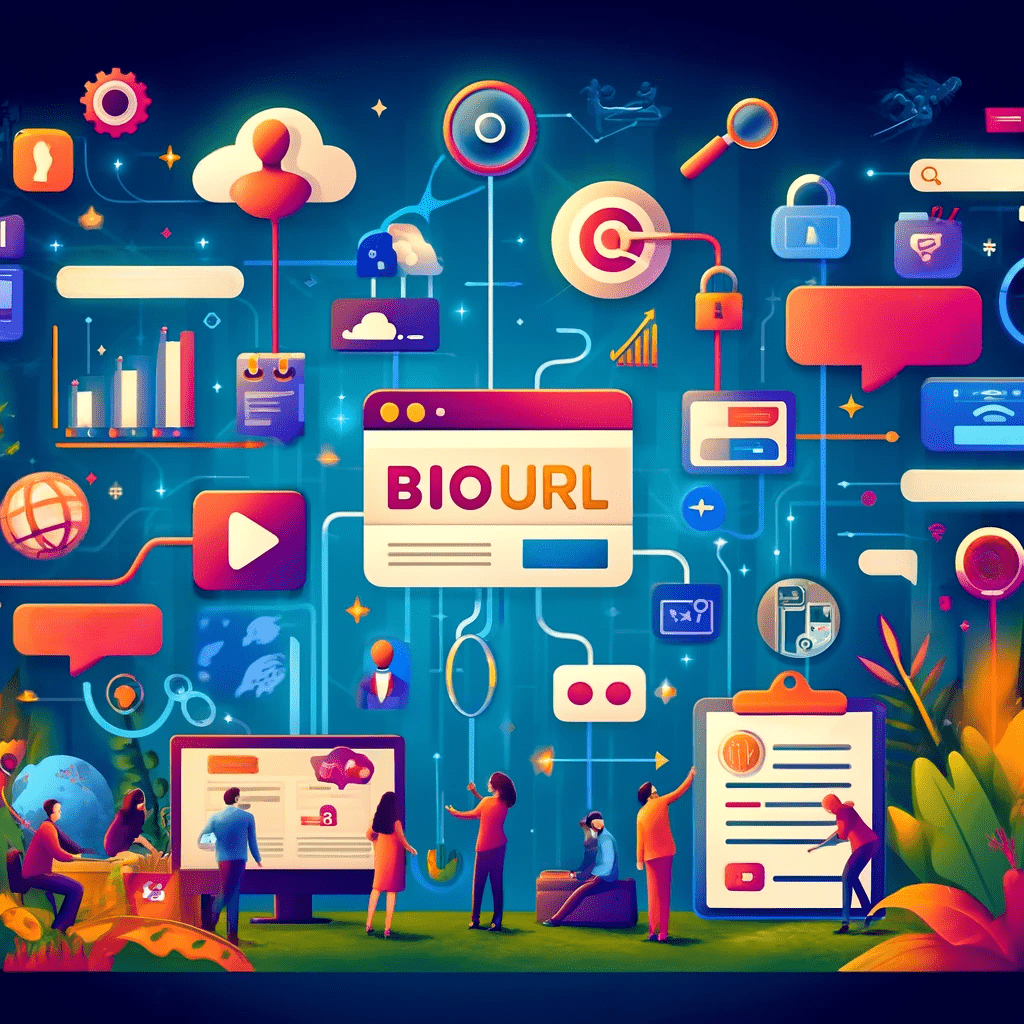
Importance of Enterprise Social Media Strategy in Modern Business
Enterprise social media strategy plays a critical role in modern business operations, enabling companies to connect with their target audience, enhance brand visibility, and drive engagement. In today's digital age, businesses must leverage social media platforms effectively to stay competitive and relevant in the market. Developing a robust enterprise social media strategy involves implementing best practices to maximize reach and impact. Below are 15 best practices that businesses can adopt to enhance their social media strategy and achieve their objectives effectively.
Understand Your Audience
To develop a successful enterprise social media strategy, businesses must first understand their target audience. Conduct thorough research to identify key demographics, interests, and behaviors of your audience to tailor your content accordingly.
Set Clear Goals and Objectives
Establishing clear goals and objectives is essential in guiding your social media strategy. Whether it's increasing brand awareness, driving website traffic, or generating leads, clearly defined goals will help measure the success of your efforts.
Choose the Right Platforms
Not all social media platforms are created equal, and it's crucial to select the ones that align with your business goals and target audience. Focus your efforts on platforms where your audience is most active.
Create High-Quality Content
Quality content is the cornerstone of any successful social media strategy. Develop engaging and relevant content that provides value to your audience, whether it's in the form of blog posts, videos, infographics, or user-generated content.
Maintain Consistency
Consistency is key to building a strong online presence. Establish a posting schedule and maintain a consistent brand voice and visual identity across all social media channels.
Monitor and Measure Performance
Regularly monitor key metrics and performance indicators to evaluate the effectiveness of your social media strategy. Use analytics tools to track engagement, reach, and conversion rates to make informed decisions.
Engage with Your Audience
Social media is a two-way street, and it's essential to engage with your audience regularly. Respond to comments, messages, and mentions promptly to build relationships and foster loyalty.
Incorporate Visual Elements
Visual content is highly engaging and can help your posts stand out in crowded social media feeds. Include compelling images, videos, and infographics to capture the attention of your audience.
Collaborate with Influencers
Partnering with influencers in your industry can help expand your reach and credibility. Identify relevant influencers who resonate with your target audience and collaborate on campaigns or sponsored content.
Leverage User-Generated Content
Encourage your audience to create and share content related to your brand. User-generated content not only fosters community engagement but also serves as authentic social proof for your brand.
Stay Updated on Trends
Social media trends evolve rapidly, and it's important to stay informed about the latest developments in the industry. Keep an eye on emerging trends and adapt your strategy to stay ahead of the curve.
Invest in Paid Advertising
While organic reach is valuable, paid advertising can help amplify your message and reach a larger audience. Consider allocating a budget for social media ads to enhance visibility and drive conversions.
Conduct A/B Testing
Experiment with different types of content, posting times, and messaging to identify what resonates best with your audience. A/B testing can provide valuable insights to optimize your social media strategy.
Foster Employee Advocacy
Empower your employees to become brand advocates on social media. Encourage them to share company updates, participate in discussions, and amplify your brand message within their networks.
Stay Compliant with Regulations
Be mindful of data privacy regulations and social media policies when executing your strategy. Ensure that your posts and campaigns adhere to legal requirements and industry standards to avoid any potential risks.
By following these best practices for developing an enterprise social media strategy, businesses can create a strong online presence, engage with their audience effectively, and achieve their marketing objectives successfully. Embracing social media as a powerful marketing tool can drive growth, enhance brand reputation, and foster long-term customer relationships in today's competitive business landscape.
Integrating Employee Advocacy into Social Media Strategies
In today's digital age, social media has become a powerful tool for businesses to connect with their audience, increase brand awareness, and drive engagement. Developing an enterprise social media strategy is crucial for organizations looking to leverage the full potential of social platforms in reaching their business goals. Here are 15 best practices to consider when developing an effective enterprise social media strategy:
- Identify Your Goals and Objectives Before diving into the world of social media, it's essential to clearly define your goals and objectives. Whether your aim is to increase website traffic, generate leads, enhance brand loyalty, or drive sales, having specific goals will guide your social media strategy in the right direction.
- Define Your Target Audience Understanding your target audience is key to creating content that resonates with them. Conduct market research to identify the demographics, interests, and online behavior of your target audience. This information will help tailor your content to meet the needs and preferences of your audience.
- Choose the Right Social Media Platforms Not all social media platforms are created equal, and it's essential to choose the ones that align with your business objectives and target audience. Whether it's Facebook, Instagram, LinkedIn, Twitter, or YouTube, selecting the right platforms will ensure that your content reaches the right people.
- Create a Content Calendar Consistency is key in social media marketing. Develop a content calendar outlining the type of content you will post, the frequency of posts, and the platforms you will use. A content calendar will help you stay organized and maintain a regular posting schedule.
- Engage with Your Audience Social media is not just about broadcasting your message; it's also about engaging with your audience. Respond to comments, messages, and mentions promptly. Engaging with your audience fosters a sense of community and builds brand loyalty.
- Utilize Visual Content Visual content tends to perform better on social media than text-only posts. Incorporate eye-catching graphics, videos, and infographics into your content strategy to grab the attention of your audience and increase engagement.
- Monitor and Analyze Performance Regularly monitor the performance of your social media efforts using analytics tools. Track key metrics such as reach, engagement, click-through rates, and conversions. Analyzing this data will help you refine your strategy and optimize your content for better results.
- Stay Updated on Social Media Trends Social media is constantly evolving, with new trends and features emerging regularly. Stay updated on the latest social media trends and incorporate relevant ones into your strategy to keep your content fresh and engaging.
- Collaborate with Influencers Influencer marketing can be a powerful way to expand your reach and credibility on social media. Identify influencers in your industry or niche and collaborate with them to tap into their followers and increase brand awareness.
- Invest in Social Media Advertising While organic reach is valuable, investing in social media advertising can help amplify your reach and target specific audience segments. Experiment with different ad formats and targeting options to find what works best for your business.
- Encourage Employee Advocacy Employee advocacy can be a valuable asset in your social media strategy. Encourage employees to share your brand's content on their personal networks, showcasing a human side to your business and extending your reach to a wider audience.
- Implement a Crisis Management Plan In the event of a social media crisis, having a well-thought-out crisis management plan in place is essential. Be prepared to respond quickly, transparently, and empathetically to mitigate any potential damage to your brand reputation.
- Focus on Engagement Metrics While metrics like likes and shares are important, focusing on deeper engagement metrics such as comments, shares, and time spent on content can provide insights into how well your audience is connecting with your brand.
- Stay Consistent with Brand Voice Maintaining a consistent brand voice across all your social media channels is crucial for building brand recognition and trust. Define your brand voice and ensure that it remains consistent in all your social media interactions.
- Continuously Optimize Your Strategy The social media landscape is constantly evolving, and what works today may not work tomorrow. Continuously test, measure, and optimize your social media strategy to adapt to changing trends and ensure long-term success.
Developing an enterprise social media strategy requires careful planning, execution, and optimization. By following these 15 best practices, businesses can create a strong social media presence, engage with their audience effectively, and achieve their marketing objectives in the digital realm.
Leveraging Data Analytics for Enhanced Social Media Strategy Performance
As businesses navigate the ever-evolving landscape of social media, leveraging data analytics has become imperative for maximizing performance and achieving strategic objectives. By harnessing the power of data-driven insights, organizations can make informed decisions, optimize their social media campaigns, and enhance overall effectiveness. Let's delve into the best practices for utilizing data analytics to elevate your social media strategy.
Understanding Key Performance Indicators (KPIs) for Social Media
Before delving into data analytics, it's essential to identify and define key performance indicators (KPIs) that align with your social media goals. Whether it's measuring engagement rates, conversion metrics, or brand awareness, clearly defined KPIs provide a roadmap for tracking success and optimizing strategies based on data-driven outcomes.
Implementing a Robust Data Analytics Strategy
To effectively leverage data analytics, organizations must implement a robust strategy that encompasses data collection, analysis, and interpretation. By utilizing advanced analytics tools and technologies, businesses can gain valuable insights into audience behavior, content performance, and campaign effectiveness.
Personalizing Content and Messaging
Data analytics enable organizations to personalize their content and messaging based on audience preferences, behaviors, and demographics. By leveraging data insights, businesses can deliver targeted and relevant content that resonates with their target audience, leading to higher engagement and conversion rates.
Optimizing Posting Schedules and Frequency
Analyzing data on when your target audience is most active on social media platforms allows you to optimize posting schedules for maximum visibility and engagement. Furthermore, monitoring the performance of your posts in real-time enables you to adjust posting frequency to maintain relevance and effectiveness.
A/B Testing and Performance Optimization
Data analytics facilitate A/B testing of various elements within your social media campaigns, such as ad copy, creatives, and calls-to-action. By analyzing the performance of different variations, organizations can optimize their strategies to drive higher engagement and conversions.
Monitoring and Real-Time Data Analysis
Continuous monitoring of social media metrics and real-time data analysis are paramount in today's fast-paced digital landscape. By staying on top of key performance indicators and trends, businesses can proactively adjust their strategies to capitalize on emerging opportunities and mitigate risks.
Leveraging Competitive Analysis
Data analytics can also be instrumental in conducting competitive analysis to benchmark your performance against industry peers and identify areas for improvement. By gaining insights into competitors' strategies and performance metrics, organizations can refine their own social media strategies for enhanced effectiveness.
Integrating Data Analytics Across Departments
Efficient utilization of data analytics requires seamless integration across various departments within an organization. By fostering collaboration between marketing, sales, customer service, and other teams, businesses can leverage data insights to inform decision-making processes and drive comprehensive strategic initiatives.
Harnessing the power of data analytics is essential for enhancing social media strategy performance in today's competitive digital landscape. By incorporating data-driven insights into decision-making processes, organizations can optimize their campaigns, drive engagement, and achieve tangible results. Embrace data analytics as a cornerstone of your social media strategy to stay ahead of the curve and maximize your online presence.
The Role of Content Personalization in Enterprise Social Media Strategies
The Role of Content Personalization in Enterprise Social Media Strategies
In today's fast-paced digital landscape, where businesses are constantly vying for the attention of their target audience, the role of content personalization in enterprise social media strategies cannot be overstated. By tailoring content to suit the specific preferences and interests of individual users, companies can significantly enhance engagement, build stronger relationships with their audience, and ultimately drive conversions. Let's delve into some key strategies and best practices for effectively incorporating content personalization into your enterprise social media strategy.
Understanding Your Audience
Before embarking on any content personalization efforts, it is crucial to have a deep understanding of your target audience. Utilize analytics tools to gather data on user demographics, behavior patterns, and preferences. By segmenting your audience based on these insights, you can create targeted content that resonates with different subsets of your followers.
Leveraging User-generated Content
User-generated content (UGC) is a powerful tool for personalizing your social media strategy. Encourage your followers to create and share their own content related to your brand. This not only fosters a sense of community but also provides valuable insights into the preferences and behaviors of your audience.
Implementing Dynamic Content
Dynamic content allows you to deliver personalized experiences to users based on factors such as their location, browsing history, or previous interactions with your brand. By dynamically updating your social media content in real-time, you can create a more tailored and engaging experience for each user.
Embracing Chatbots and AI
Chatbots and artificial intelligence (AI) can play a key role in content personalization on social media. By leveraging chatbots to interact with users and gather data about their preferences, you can deliver more relevant content and offers to individual users. AI-powered tools can also help in analyzing data at scale to identify patterns and trends that can inform your content personalization strategy.
A/B Testing and Optimization
A/B testing is a valuable technique for refining your content personalization efforts. By testing different variations of your content on small segments of your audience, you can identify which approaches resonate best with users. Continuously optimize your content based on the insights gathered from these tests to maximize engagement and conversions.
Building Relationships Through Personalization
Personalization should not just be about delivering targeted content; it should also be about building meaningful relationships with your audience. Engage with users on a personal level, respond to their comments and messages, and tailor your interactions to suit their preferences. This human touch can go a long way in fostering loyalty and trust.
Measuring Success and Iterating
To gauge the effectiveness of your content personalization efforts, it is essential to establish key performance indicators (KPIs) and regularly monitor your results. Track metrics such as engagement rates, click-through rates, and conversion rates to assess the impact of your personalized content. Use these insights to iterate and refine your strategy over time continually.
Content personalization is a cornerstone of successful enterprise social media strategies in the digital age. By understanding your audience, leveraging user-generated content, implementing dynamic content, embracing technology, and focusing on building relationships, you can create engaging and personalized experiences that resonate with your followers. Stay agile, keep experimenting, and always prioritize the needs and preferences of your audience in your content personalization efforts.
Implementing Chatbots and AI in Enterprise Social Media Engagement
The integration of chatbots and artificial intelligence (AI) in enterprise social media engagement has become increasingly prevalent in the digital landscape. Leveraging these technologies can significantly enhance customer interactions, streamline communication processes, and improve overall user experience. By following best practices and strategic implementation methods, businesses can effectively harness the power of chatbots and AI to optimize their social media engagement efforts.
Understanding Chatbots and AI in Enterprise Social Media
In today's fast-paced digital environment, chatbots and AI technologies are revolutionizing the way businesses engage with their audience on social media platforms. Chatbots are computer programs designed to simulate conversation with users, providing real-time responses to inquiries and facilitating automated interactions. On the other hand, AI algorithms enable machines to analyze data, learn patterns, and make decisions, thereby enhancing the sophistication and personalization of customer interactions.
Identifying the Benefits of Chatbots and AI Integration
The incorporation of chatbots and AI in enterprise social media engagement offers a myriad of benefits for businesses looking to scale their online communication efforts. These technologies can operate 24/7, ensuring round-the-clock availability for customer queries and support. Chatbots can handle a high volume of inquiries simultaneously, reducing response times and improving efficiency. Moreover, AI-powered analytics can provide valuable insights into consumer behavior, preferences, and trends, enabling businesses to tailor their social media strategies accordingly.
Best Practices for Implementing Chatbots and AI in Social Media Engagement
- Define Clear Objectives: Before integrating chatbots and AI, outline specific goals and objectives to align these technologies with your business strategy.
- Personalize Customer Interactions: Utilize AI algorithms to personalize conversations and recommendations based on user preferences and past interactions.
- Seamless Integration: Ensure seamless integration of chatbots across multiple social media platforms to provide a cohesive user experience.
- Continuous Monitoring and Optimization: Regularly monitor chatbot performance, collect feedback, and optimize interactions based on user responses.
- Data Security and Privacy: Implement robust security measures to safeguard customer data and ensure compliance with data protection regulations.
- Adaptability: Train chatbots to learn from new interactions and adapt their responses to evolving consumer needs and preferences.
- Human Touchpoints: Integrate human support where necessary to handle complex queries or provide personalized assistance beyond the capabilities of chatbots.
- Multi-Lingual Support: Incorporate language capabilities to enable multilingual interactions and cater to a diverse global audience.
- A/B Testing: Conduct A/B testing to experiment with different chatbot strategies and optimize performance based on user engagement metrics.
- Feedback Mechanisms: Implement feedback mechanisms to gather insights from users and continuously improve the chatbot experience.
By adhering to these best practices and guidelines, businesses can leverage the power of chatbots and AI to enhance their social media engagement strategies, drive customer satisfaction, and foster meaningful interactions with their audience. The seamless integration of these technologies can pave the way for enhanced user experiences, improved efficiency, and sustainable business growth in the digital era.
Conclusion
In today's rapidly evolving digital landscape, the significance of an effective Enterprise Social Media Strategy cannot be overstated. As businesses strive to stay ahead of the curve and remain competitive, leveraging social media platforms to engage with their audience, build brand awareness, and drive conversions has become essential. By embracing a strategic approach to social media, organizations can harness the power of online connectivity to foster meaningful relationships with their target demographic.
One key aspect of a successful Enterprise Social Media Strategy is the integration of employee advocacy. Empowering and encouraging employees to become brand ambassadors can significantly amplify the reach and impact of social media initiatives. When employees share company content and interact with their networks, it adds a layer of authenticity and credibility to the brand's online presence. By cultivating a culture of advocacy within the organization, businesses can tap into a valuable and organic resource for social media promotion.
Moreover, data analytics plays a pivotal role in enhancing the performance of social media strategies. By leveraging the insights derived from analytics tools, businesses can gain a deeper understanding of their audience's behavior, preferences, and engagement patterns. This data-driven approach enables organizations to refine their content strategies, optimize posting times, and tailor their messaging to resonate more effectively with their target market. By harnessing the power of analytics, businesses can make informed decisions that drive better results and ROI from their social media efforts.
Another crucial element in the realm of Enterprise Social Media Strategy is the role of content personalization. In an era where consumers are inundated with digital content, personalization has emerged as a key differentiator for brands looking to cut through the noise and connect with their audience on a more individualized level. By crafting tailored content that speaks directly to the interests and needs of different segments of their target market, businesses can create more engaging and relevant social media experiences that drive customer loyalty and satisfaction.
Furthermore, the implementation of chatbots and AI technology has revolutionized the landscape of social media engagement for businesses. By leveraging automated tools to interact with customers, provide real-time support, and streamline communication processes, organizations can enhance their responsiveness and efficiency on social media platforms. Chatbots and AI-driven solutions not only improve customer service but also enable businesses to deliver personalized experiences at scale, driving higher levels of engagement and satisfaction among their online audience.
A well-rounded Enterprise Social Media Strategy is vital for businesses looking to thrive in the digital age. By recognizing the importance of employee advocacy, harnessing the power of data analytics, embracing content personalization, and integrating chatbots and AI technology into their social media initiatives, organizations can create more impactful and engaging online experiences for their audience. By staying abreast of the latest trends and advancements in social media marketing, businesses can position themselves for success and drive sustainable growth in an increasingly competitive landscape.
Unlock the secrets to Instagram success with BioURL.link. Optimize your strategy, captivate your audience, and measure your triumphs with our advanced features. Seize the opportunity to stand out in a crowded digital world. Start your journey to Instagram mastery with BioURL.link today.



